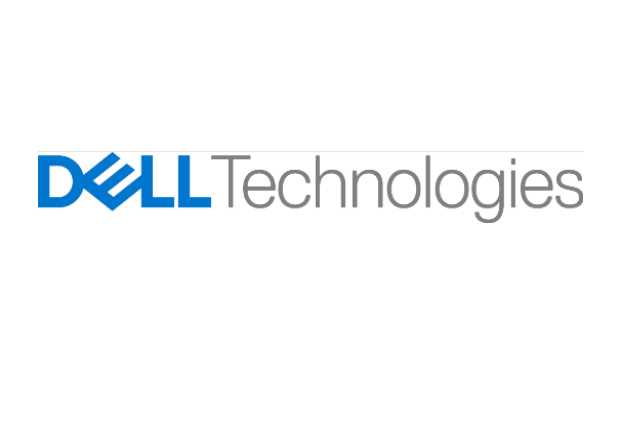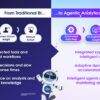Dell Technologies is releasing the results from a global commissioned study* conducted by Forrester Consulting, which shows most businesses in Asia Pacific & Japan (APJ) are struggling with the proliferation of data. Instead of offering a competitive advantage, data has become a burden due to an array of barriers: a data skills gap, data silos, manual processes, business silos, and data privacy and security weaknesses. This “Data Paradox” is driven by the volume, velocity and variety of data overwhelming businesses, technology, people, and processes.
The findings are based on a survey of more than 4,000 decision-makers from 45 countries globally including 1000 respondents from nine countries across APJ (Australia, India, Indonesia, Japan, New Zealand, Singapore, South Korea, Thailand, and Vietnam). The study builds on the Dell Technologies Digital Transformation Index research, which assesses the digital maturity of businesses around the globe. The new Digital Transformation Index revealed that “data overload/unable to extract insights from data” was the third highest global ranking barrier to transformation (APJ: 3rd), up from 11th place in 2016 (APJ: 12th).
1. The Perception Paradox
Two-thirds of respondents (Global: 66%, APJ: 67%) say their business is data-driven and state “data is the lifeblood of their organization.” But only a little over a fifth (Global: 21%, APJ: 21%) testify to treating data as capital and prioritizing its use across the business.
To provide some clarity around this paradox, the research outlines an objective measurement of businesses’ data readiness.
The results show that businesses (Global: 88%, APJ: 88%) are yet to progress either their data technology and processes and/or their data culture and skills. Only 12% of businesses globally and in APJ are defined as Data Champions: companies that are actively engaged in both areas (technology/process and culture/skills).
2. The “Want More Than They Can Handle” Paradox
According to the research, 70% globally and 73% in APJ say they are gathering data faster than they can analyze and use, yet 67% globally and 69% in APJ say they constantly need more data than their current capabilities provide. This could be the result of:
- Global: 64%, APJ: 62% guarding a significant amount of their data in data centers they own or control, despite the known benefits of processing data at the edge (where the data is generated).
- Poor data leadership: Global: 70%, APJ: 69% admit their board still doesn’t visibly support the company’s data and analytics strategy.
- An IT strategy that doesn’t scale: Global: 57%, APJ: 54% are bolting on more data lakes, rather than consolidating what they have.
Consequentially, the explosion in data is making their working lives harder rather than easier: Global: 64%, APJ: 66% complain they have such a glut of data they can’t meet security and compliance requirements, and Global: 61%, APJ: 66% say their teams are already overwhelmed by the data that they have.
“At a time when businesses are under immense pressure to embrace digital transformation to accelerate customer service, they need to juggle getting more data in, as well as better mining the data that they have. Particularly now, with 44% globally and in APJ saying the pandemic significantly increased the amount of data they need to collect, store, and analyze,” commented Amit Midha, President, Asia Pacific & Japan and Global Digital Cities, Dell Technologies. “Becoming a data-driven business is a journey, and they’ll need guides to help them along the way.”
3. The “Seeing Without Doing” Paradox
Over the past 18 months the on-demand sector has expanded, igniting a new wave of data-first, data-anywhere businesses. However, the number of businesses that have moved the majority of their applications and infrastructure to an as-a-Service model is still few (Global: 20%, APJ: 21%). Even though:
- Global: 64%, APJ: 66% see the opportunity to scale to changing customer demands
- Global: 63%, APJ: 65% believe it would enable companies to be more agile
- Global: 60%, APJ: 60% forecast businesses would be able to provision applications quickly and simply (with just the touch of a button)
- An on-demand model would help the 83% & 81% of businesses globally and in APJ respectively that are currently wrestling with either or all of the following barriers to better capturing, analyzing and acting on data: high storage costs; a data warehouse that is not optimized; outdated IT infrastructure; processes that are too manual to meet their needs.
Hope on the Horizon
Although businesses are struggling today, many have plans to create a better tomorrow: Global: 66%, APJ: 67% intent to deploy machine learning to automate how they detect anomaly data, 57% globally and in APJ are looking to move to a data-as-a-service model and Global: 52%, APJ: 47% are planning to look deeper into the performance stack to rearchitect how they process and use data in the next 1-3 years.
Three ways businesses can turn their data burden into a data advantage:
- Modernizing their IT infrastructure, so it meets data where it lives, at the edge. This incorporates bringing businesses’ infrastructure and applications closer to where data needs to be captured, analyzed and acted on – while avoiding data sprawl, by maintaining a consistent multi-cloud operating model.
- Optimizing data pipelines, so data can flow freely and securely while being augmented by AI/ML.
- Developing software to deliver the personalized, integrated experiences customers crave.












































































































